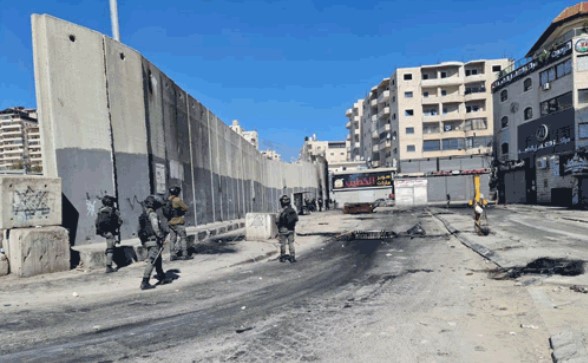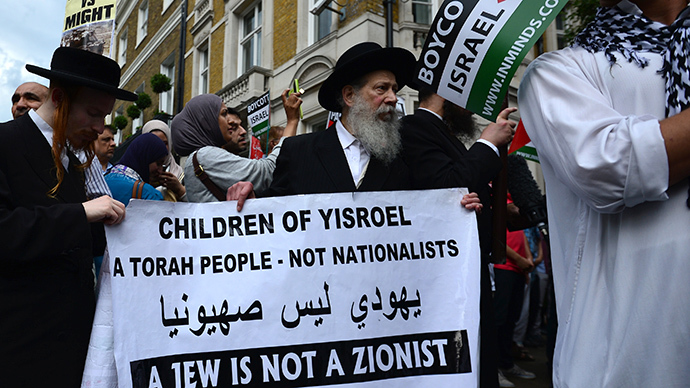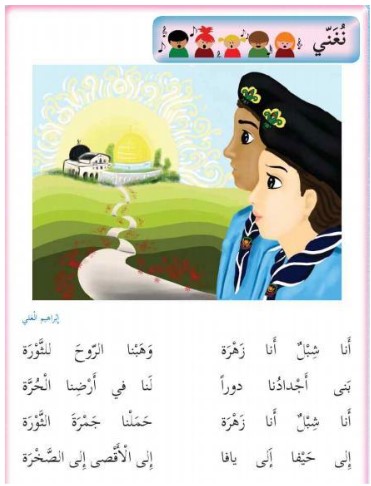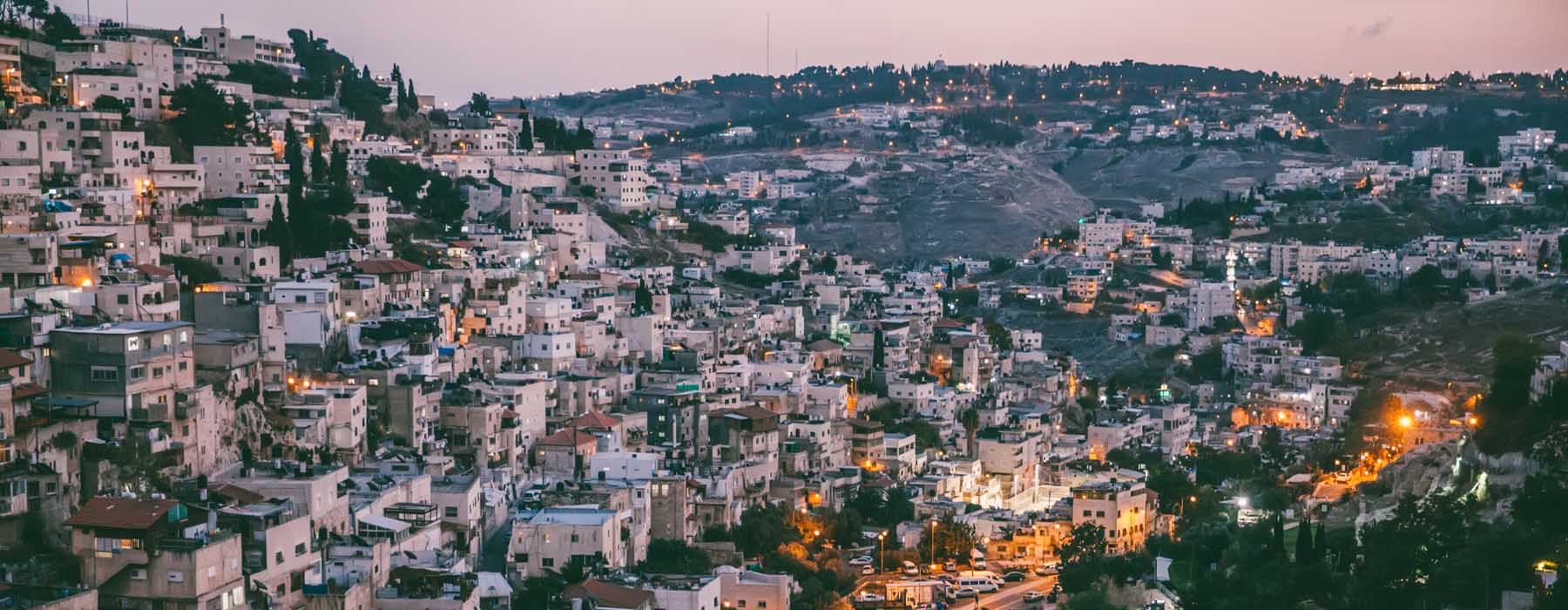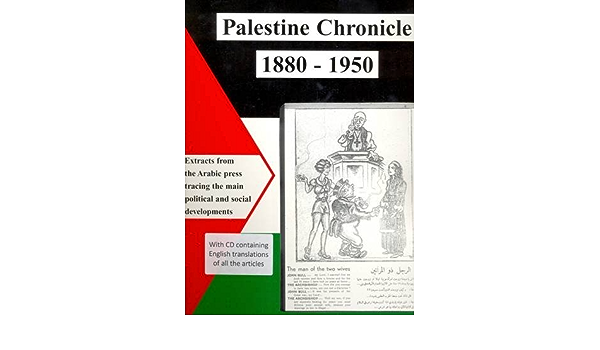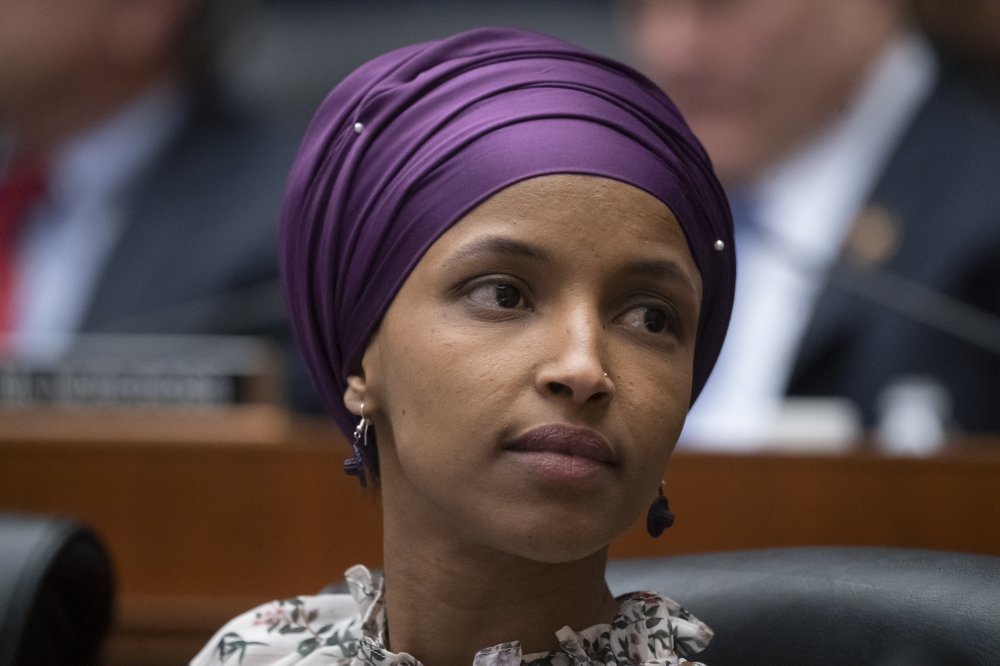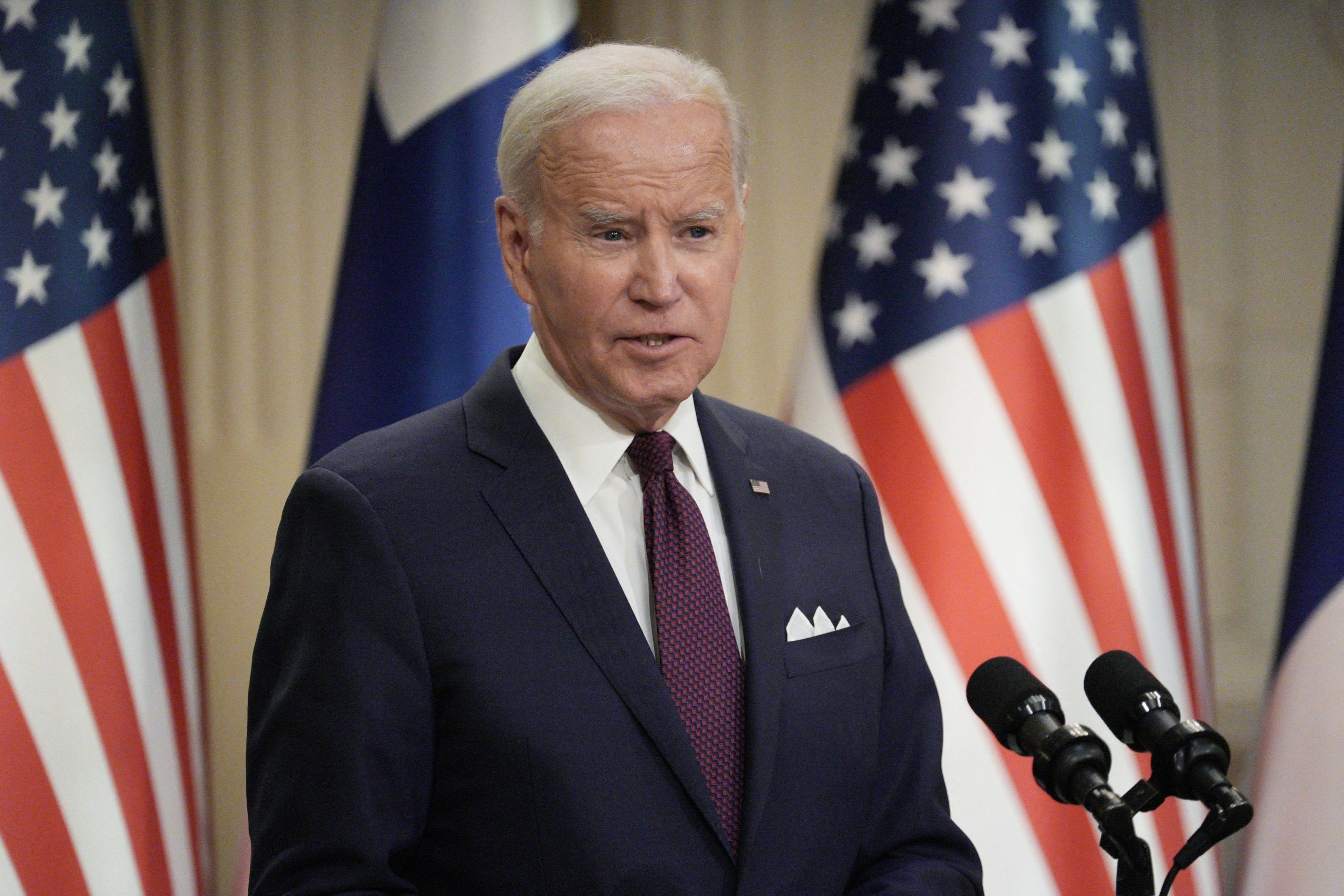Gorenberg’s case for Israel’s “democracy” is a good example, and is itself a contradiction, because the Zionist state was established by the Nakba (catastrophe), during which military forces expelled at least 750,000 Palestinians from their homeland.
This article draws its title from two opposing articles—Gershom Gorenberg’s opinion piece “Israel is Best Understood Through Its Contradictions” in the New York Times and Erica Caines and Geechee Yaws, “’Ignorance is Bliss’ and Other Fallacies of Counterinsurgency,” an article in Hood Communist which stresses the importance of confronting uncomfortable truths in order to achieve liberation.
“The media presentation of Israel’s mass protest as a fight for democracy is misleading, at best,” writes activist/journalist Ramzy Baroud, “as it fails to address the historical, ideological and, ultimately, class divides in Israeli society.”
Gorenberg’s case for Israel’s “democracy” is a good example, and is itself a contradiction, because the Zionist state was established by the Nakba (catastrophe), during which military forces expelled at least 750,000 Palestinians from their homeland and murdered 15,000 more in a series of mass attacks, including dozens of massacres. Hence, as Baroud contends, Israel’s establishment as a settler-colonial state was “made possible by the expulsion of most of the native Palestinian population.”
“There is little that sets the Zionist venture apart from many other colonial quests,” writes Ahmad H. Sa’di, “other than its late appearance on the world’s stage” (Ahmad H. Sa’di, “Towards a Decolonization of Colonial Studies,” Decolonizing the Study of Palestine: Indigenous Perspectives and Settler Colonialism After Elia Zureik, Ahmad H. Sa’di and Nur Masalha, Eds, 2023, p. 13). Sa’di continues that “the legacy of colonialism still pervades all aspects of Western cultures” (p. 13), as it does in Gorenberg’s essay.
Indeed, as Baroud explains: “Israel’s dichotomy is that it was founded by an ideology, Zionism, which purposely conflated between religion and nationality.” In recent years, Israel’s “religious zealots,” once allocated to the margins, have far outflanked their fellow secularists, making possible the Jewish only laws that are the rational outcome of Zionist logic.
“The irony and the source of confusion,” Baroud concludes, “is that all past and current leadership of Israel – liberal, conservative or religious – are proud Zionists who saw Judaism as a centerpiece in the Israeli identity.” There never was a democratic Israel that Gorenberg says is now in danger of being lost, anymore than America, founded on the extermination of Native tribes and on the backs of enslaved people, was founded as a democracy in any broad sense of the word.
In his article covering the protests over proposed judicial reforms, Gorenberg states that the “size of the protests [have] been possible” because those “who oppose the occupation are intensely involved.” He contends that only by preserving this “big tent” can the “democracy movement” defeat the government’s drive towards dictatorship.
Who frequents this tent that is supposed to save the Zionist state’s democracy? Not ‘48 Palestinians, it seems, for, as Suheir Abu Oksa Daoud explains, they understand that whichever way the issue is decided, Palestinians will still be the target of discrimination. “A state that explicitly defines itself as Jewish, rather than a state for all its citizens,” Daoud contends, “cannot guarantee fundamental democratic rights and equal citizenship to its minority, and their integration into state institutions will be always conditional.”
Moreover, as Baroud explains, Yet, there were no protests “when Israel passed its Nation-State Law in 2018, defining Israel as the ‘national home of the Jewish people, in which it fulfills its natural, cultural, religious and historical right to self-determination.’” Indeed, he continues, most Israeli Jews have no problem with laws that seek to further disenfranchise Palestinian Arab citizens of their country.
There does appear to be an anti-occupation bloc within the larger protests. Members post frequently on Facebook regarding where to meet, what signs to carry, etc. For example, Tzvika Markovitz calls on others to join the “parade of the dead,” a demonstration in which protestors carry pictures of Palestinians who are the victims of state-sponsored murder. Like the Madres of the Plaza de Mayo in Argentina (1976-1983), who carried photos of the disappeared, their action is in direct contrast to the majority who see no contradiction between state-sponsored assassination and democracy.
But are they really a part of the broader scene, and if so, are “big tents” a good idea? In a similar vein, organizers of the Rage Against the War Machine rally that was held in D.C. on February 19 proposed a “big tent” venue, a gathering of the left and right, all committed to ending the war.
In “Apologies Not Accepted: Or I Love It When the Universe Proves me Right,” journalist Jacqueline Luqman explained that when she pointed out the “very public bigotry” of the Libertarian party, which took part in the protest, she was accused of being a COINTELPRO agent who was “sowing division” within the ranks.
Luqman’s dictum that “Black people will not make common cause with racists and bigots. Racists do not get a pass because they call themselves anti-war” should be a warning to Israeli activists who oppose the occupation. “Pro-democracy” protestors care mostly about democracy for Israelis and are content to leave apartheid as it is.
“For now,” Gorenberg writes, “everyone trying to save Israel’s democracy is on the same side.” Even if this were so, when the protests are done, whoever wins, pro-democracy protestors, who refuse to contend with Palestinians, will not come to the aid of fellow Israelis who understand that democracies do not co-exist with occupation.
Gorenberg admits that there “is an essential contradiction between liberal democracy and the denial of rights to Palestinians.” As proof, he points out that he can report on the occupation and then return to his home “without fearing government retribution”; in fact, he is denying the existence of Palestinian journalists who have been assassinated for the crime of reporting what they see.
Indeed, The Committee to Protect Journalists (CPJ) reports that over the past 20 years, Israel has murdered 22 Palestinian journalists, including Shireen Abu Akleh, a correspondent for Aljazeera, who was killed on May 11, 2022, by Israeli forces. As of this date, no one has been held accountable for these crimes.
Moreover, Zionist state repression reaches far beyond its borders. Indeed, the International Association of Democratic Lawyers (IADL) recently adopted a resolution condemning the attacks on Palestine solidarity and Palestinian community organizing in Europe. It also encourages institutions and legal organizations to reject the so-called “IHRA definition of anti-Semitism” that seeks to equate anti-Zionism and support for Palestinian liberation with anti-Semitism.
Here is the crux: “A great many Israelis who ignored the chronic crisis of occupation, or long ago gave up on finding a cure,” writes Gorenberg, “nevertheless recognize the new and acute threat to the country’s fragile democracy.” Without a “cure,” ostensibly the dismantling of the Zionist entity to make way for a secular state with equal rights for all, there is no democracy, fragile or otherwise.
But Gorenberg fails to go there. It seems that he might think he lives within a “flawed but real democracy,” but by leaving out the entire Palestinian population, the indigenous people of the land, is his ignorance really bliss?
“In a world full of challenges which desperately requires sharp minds to resolve them,” write Caine and Yaw, “we should view phrases like these as methods of counterinsurgency that prevent us from pursuing awareness of not only past and present conditions, but of the way things could be in the future as well.”
– Benay Blend earned her doctorate in American Studies from the University of New Mexico. Her scholarly works include Douglas Vakoch and Sam Mickey, Eds. (2017), “’Neither Homeland Nor Exile are Words’: ‘Situated Knowledge’ in the Works of Palestinian and Native American Writers”. She contributed this article to The Palestine Chronicle.





